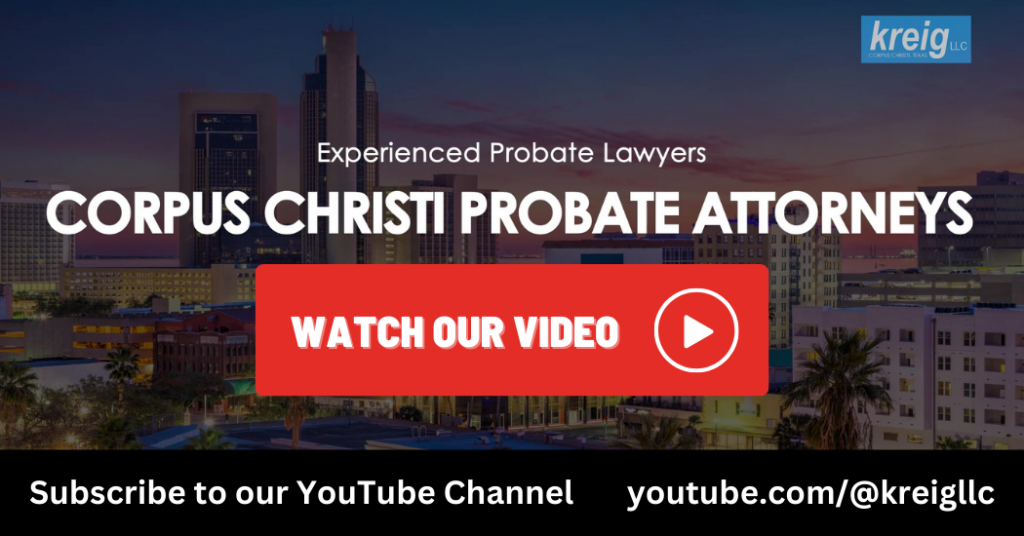Probating a will in Texas can be a complex process, but it doesn’t have to be. This case study will provide a detailed overview of the probate process in Texas, using a specific scenario as an example. The scenario involves probating a will in Nueces County, Texas, where the will is self-proving and names the individual seeking to probate the will as the only beneficiary. The deceased individual did not own any real property, but did have several assets, including life insurance policies, retirement benefits, and financial accounts.
The first step in the probate process is to file the will with the appropriate probate court in Nueces County, Texas. The individual seeking to probate the will, as the named beneficiary, would typically serve as the executor of the estate. The executor is responsible for gathering and managing the assets of the deceased individual, paying any debts or taxes that are owed, and distributing the assets to the beneficiaries as outlined in the will.
Self-Proving Affidavits
In this case, the will is self-proving, which means that the will was signed in the presence of two witnesses and a notary public. A self-proving affidavit is a document that accompanies the will and attests to the fact that the will was properly executed. A self-proving will is considered to be valid without the need for additional testimony from the witnesses who signed the will. This can make the probate process quicker and easier, as the court does not need to take additional steps to verify the validity of the will.
Validating the Will
Once the will is filed with the court, the court will review the will and the self-proving affidavit to determine if the will is valid. The court will look at several factors to determine the validity of the will, including whether the will was executed in accordance with Texas law and whether the will was executed by a person who was of sound mind and not under duress at the time the will was executed.
If the court finds the will to be valid, the executor would be granted the authority to proceed with the administration of the estate. This is known as “letters testamentary,” which is a document issued by the court that authorizes the executor to act on behalf of the estate.
Gathering and Inventorying Assets
The next step in the probate process is to gather and inventory all assets of the deceased individual. This includes locating and collecting all life insurance policies, retirement benefits, and financial accounts. The executor should also notify any financial institutions or companies that the deceased individual had accounts with, and provide them with a copy of the death certificate and a copy of the will or letters testamentary.
Once all assets have been gathered, the executor should create an inventory of all assets, including the value of each asset at the time of the deceased individual’s death. This inventory should be filed with the court, along with a list of any debts or taxes that are owed by the estate.
Paying Debts and Taxes
After the assets have been gathered and inventoried, the executor must pay any outstanding debts or taxes owed by the deceased individual. This may include credit card balances, medical bills, and any taxes owed to the state or federal government.
Distributing the Assets
Once all debts and taxes have been paid, the executor can distribute the remaining assets to the beneficiaries as outlined in the will. In this case, since the individual seeking to probate the will is the only beneficiary, the distribution of assets would be relatively straightforward. The executor would simply need to transfer the assets to the beneficiary in accordance with the will.
It’s important to note that the executor has a fiduciary duty to the beneficiaries of the estate. This means that the executor must act in the best interests of the beneficiaries and must not use their position for personal gain. The executor must also keep accurate records of all transactions and must provide an accounting of the estate to the beneficiaries if requested.
Final Report and Closing the Estate
Once the assets have been distributed, the executor must file a final report with the court, detailing the assets that were gathered, the debts and taxes that were paid, and the distribution of assets to the beneficiaries. This report should include a detailed accounting of all transactions that occurred during the probate process.
The court will review the final report and, if it is found to be accurate and complete, the court will approve the report and close the estate. This means that the executor will be discharged from their duties, and the probate process will be complete.
It’s important to note that the probate process can take several months or even years to complete, depending on the complexity of the estate and the number of assets that need to be gathered and distributed.
The Takeaway
Again, probating a will in Texas can be a complex process, but it doesn’t have to be. This case study provided a detailed overview of the probate process in Texas, using a specific scenario as an example. The scenario involved probating a will in Nueces County, Texas, where the will was self-proving and named the individual seeking to probate the will as the only beneficiary.
The probate process includes several steps, including filing the will with the court, validating the will, gathering and inventorying assets, paying debts and taxes, and distributing the assets to the beneficiaries. The process can be made quicker and easier by using a self-proving will, which eliminates the need for additional testimony from the witnesses who signed the will.
It’s important to note that the executor has a fiduciary duty to the beneficiaries of the estate, and must act in the best interests of the beneficiaries and must not use their position for personal gain. Additionally, the executor must keep accurate records of all transactions and must provide an accounting of the estate to the beneficiaries if requested.
Do you need help with a probate matter in Corpus Christi or the surrounding area? We are Corpus Christi probate attorneys. We help clients navigate the probate process. Call today for a free confidential consultation, 361-298-1109.
Our Corpus Christi Probate Attorneys provide a full range of probate services to our clients, including helping with probate disputes. Affordable rates, fixed fees, and payment plans are available. We provide step-by-step instructions, guidance, checklists, and more for completing the probate process. We have years of combined experience we can use to support and guide you with probate and estate matters. Call us today for a FREE attorney consultation.
Disclaimer
The content of this website is for informational purposes only and should not be construed as legal advice. The information presented may not apply to your situation and should not be acted upon without consulting a qualified probate attorney. We encourage you to seek the advice of a competent attorney with any legal questions you may have.




